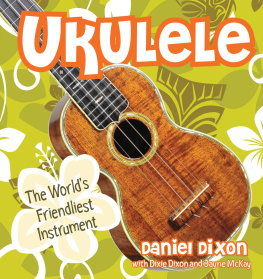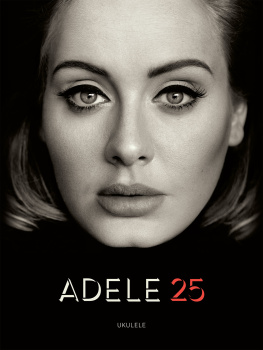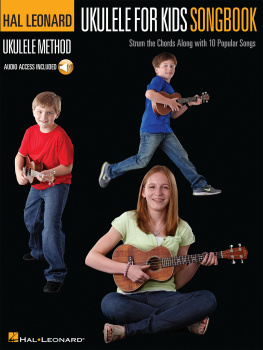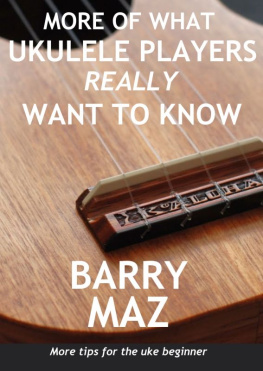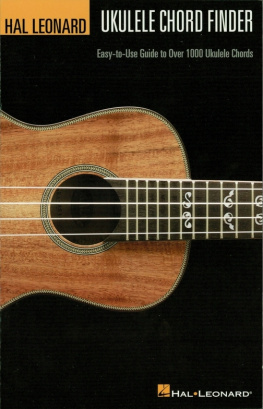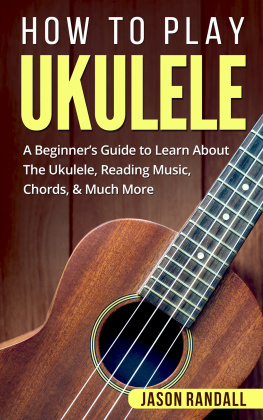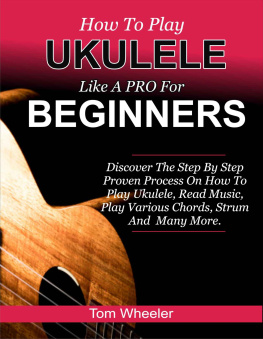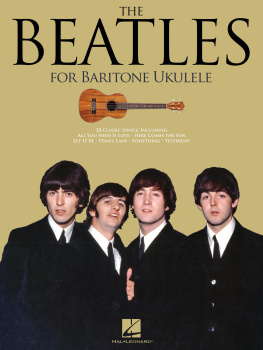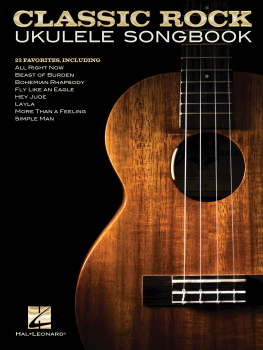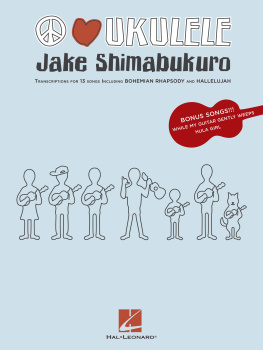Ukulele
The Worlds Friendliest Instrument
Daniel Dixon with Dixie Dixon and Jayne McKay
Photography as noted throughout.

Ukulele
The Worlds Friendliest Instrument
Digital Edition 1.0
Text 2014 Daniel Dixon with Dixie Dixon and Jayne McKay
Photographs 2014 as noted throughout
All rights reserved. No part of this book may be reproduced by any means whatsoever without written permission from the publisher, except brief portions quoted for purpose of review.
Gibbs Smith
P.O. Box 667
Layton, Utah 84041
Orders: 1.800.835.4993
www.gibbs-smith.com
ISBN: 978-1-4236-1812-6
Acknowledgments
Thank you to the following people who provided interviews, interest and help of one kind or another: Mike DaSilva, Ian Whitcomb, John Birsner, The Broken G Strings (Beverly Wesley and Georgene Goodwin), Celina Gutierrez, Andy Andrews, Sandor Nagyszalanczy, Peter Thomas, Jim Beloff, Jayne McKay, and my wife and beloved partner, Dixie.
Daniel Dixon
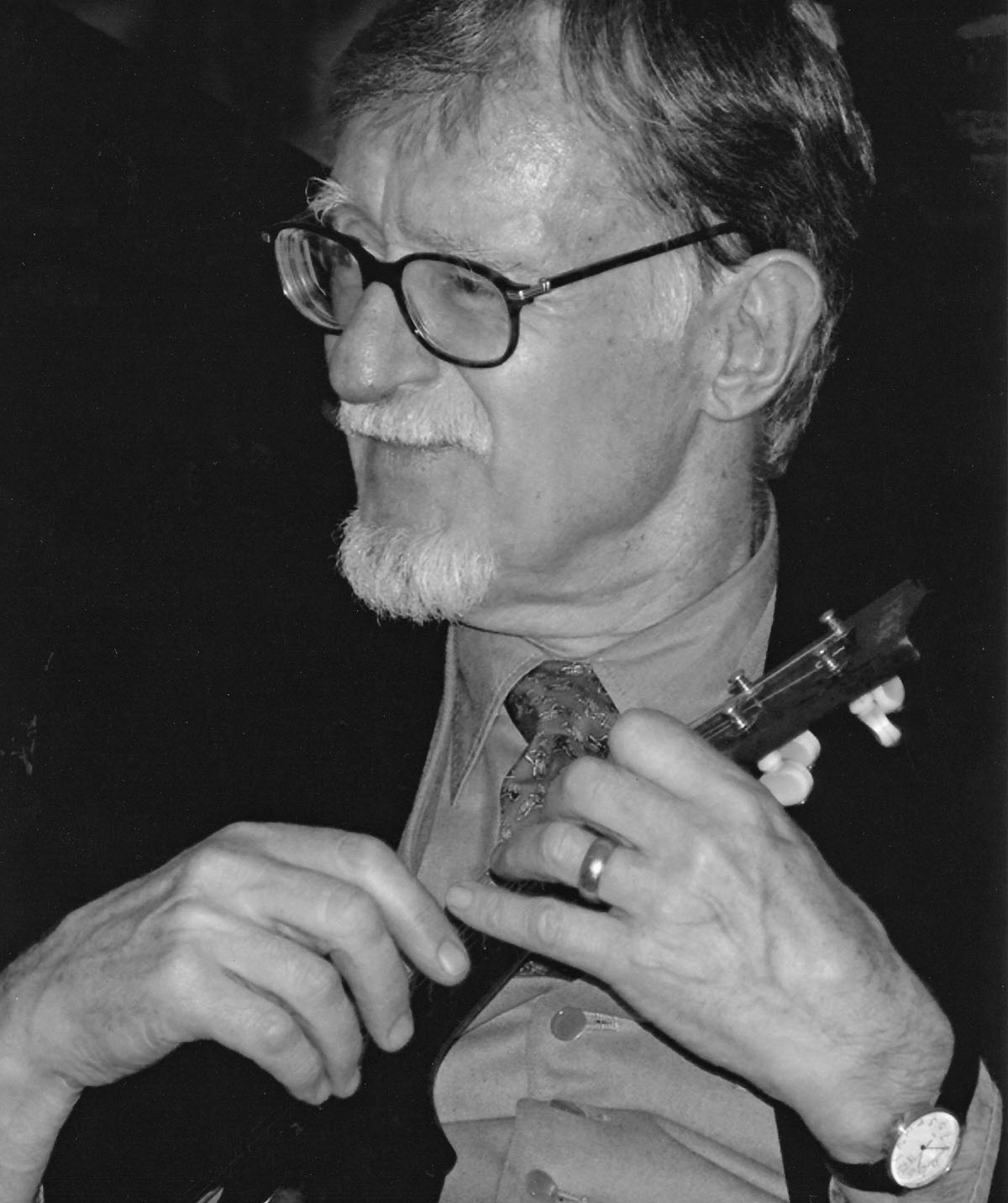
Photography by Dixie Dixon.
Overture
The ukulele has been my very good friend and faithful companion for over sixty years now. Its been a comfort to me when Im lonely. Its aided me in my courtships. Its supported me in business presentations. Its helped me rejoice and celebrate. Its taught me something about the virtue of humility. And its always been good for a laugh.
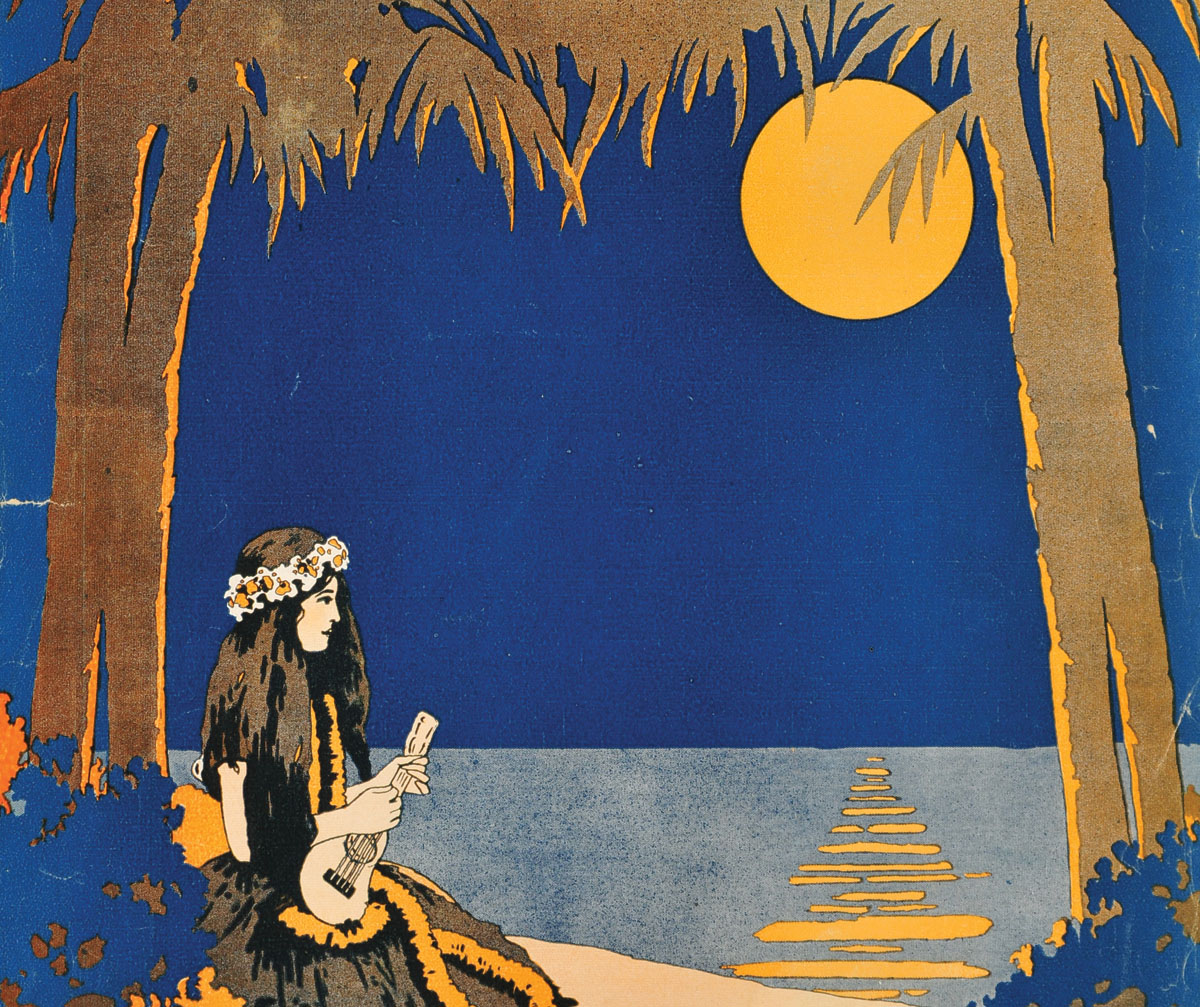
Photography by Sandor Nagyszalanczy.
In all this time, my primitive strumming has never really improved. I dont play much better today than I did back then, and I still cant read a note of music or pick out the single-string melody of a simple tune like Aint She Sweet? I just strum and hum along and hope for the best. Ignorance, they say, is bliss.
Or is it?
After decades of mauling my uke in the rudimentary key of C, I began to regret how little I understood its history, its culture and its character. I wanted to know more about my old friendits past, its present, its future. And so I decided to take George Bernard Shaws advice. The best way to learn about a subject, he declared, is to write a book about it.
As things turned out, Shaw was dead right. In the writing of my book, I learned more about the ukulele than I ever suspected was there to collect. I already knew, of course, that the uke has been persistently derided as a musical toy of about the same worth as the kazoo or the pennywhistle. I also knew that it was the adopted child of the Hawaiian islanders. The facts are unambiguous. Yet many people, even in Hawaii, continue to believe that the ukulele originated there among the palm-fringed beaches and little grass shacks. Myth and legend have shrouded its ancestry like the mist that rises from Hawaiian waterfalls.
The purpose of this book is not to settle such nettlesome issues. That should be the work of some acknowledged scholar, which I am emphatically not. I am just a man whos come to understand that his ukulele is a truly remarkable instrument. It may have its limitations. It cant summon us to prayer or cause us to weep. It doesnt transfigure or exalt us. But it can almost always make us smile.
This must be the reason why the ukulele is now riding the crest of an international revival. Its more than just a temporary feverit has all the signs of a permanent movement.
If for any reason you doubt this phenomenon, do yourself a favor. Read no further. Close the bookand also your mind. But if youve started to feel that the ukulele might just be more important than youve ever believed, read on. There are a lot of joys and surprises waiting for you out there in Ukeland.
And who knows? You might just be a part of them.

Photography by J. Gracey Stinson.
From Portugal to Paradise
The Uke Goes Hawaiian: 1879 to 1915
The origins of the ukulele are as uncertain as an alley cats.
Nobody knows for sure when, where or by whom the uke was first created. In Greece? In Spain? The authorities differ, and sometimes bicker.
On this conclusion, though, even the cantankerous scholars agree. The parents of the ukulele were clearly Europeans, not Polynesians. The experts also concur that at some obscure date the ukulele migrated to Portugal.
They didnt call it a ukulele in those days. That came later. The Portuguese defined it as a machete, or sometimes as a machimbo or a machim or a braquinho. It didnt take the machete long to become a respected musical citizen of Portugal. Especially on the Portuguese island of Madeira, it was a regular guest at fiestas and dances and weddingswherever people gathered to have a good time.
It also traveled, usually on ships. Some of these journeys took it a long, long way from home.
The Portuguese of that era were acknowledged to be the worlds master mariners, and the machetes they carried with them must have been a great comfort to these seamen. Music provided recreation and helped relieve the monotony of voyages that seemed to never end.
Some of these Portuguese vessels dropped anchor in the harbors the Atlantic had carved from the coast of Brazil. The crews swarmed ashore to satisfy their lusts and their longings. And just to help out with the singing and the dancing, they took along their machetes.
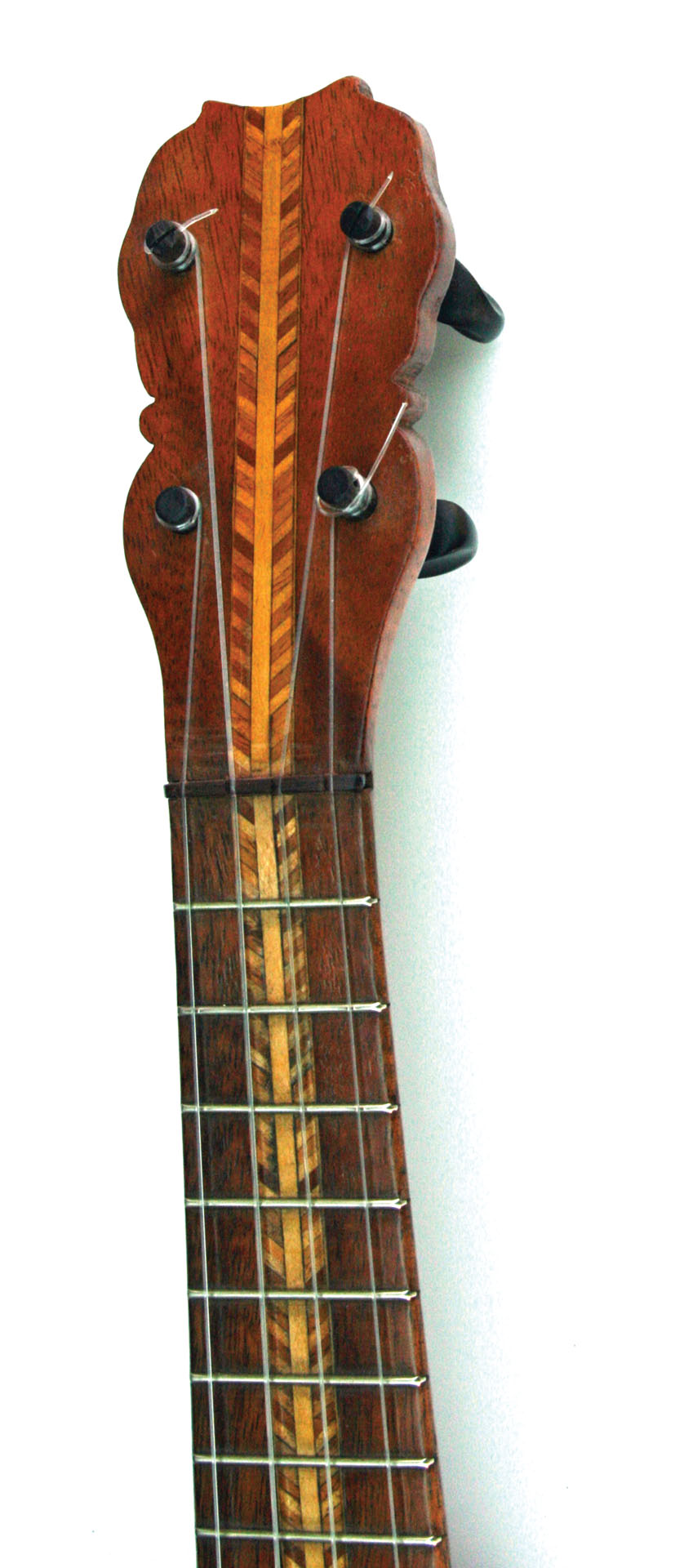
Photography by Dixie Dixon.
But these men were more than just mariners; they were also conquerors and colonists. And they had some serious business to pursue there in Brazil.
Like the Portuguese settlements they helped to establish, their diminutive four-string instrument soon blended into the Brazilian landscape. The natives took to it as enthusiastically as they did to other European refinements of dress and deportment. They gave it a name of their ownthe cavaco. And with the cavaco they played a hip-twitching music of their ownthe samba, the cholo. In Brazil today, many bands and orchestras reserve a special place for the guy who plays the cavaco.
Over the next hundred years or so, the wind went out of the Portuguese sails. Its dreams of glory and empire faded. By the nineteenth century the kingdom was becalmed and drifting toward political and economic insignificance.
On Madeira, despite the hard times, the machete continued to thrive. The people who made and played them, however, did not. They began to emigrate, headed for wherever work and opportunity could be found.

